Dragon’s Dogma 2 Review | ‘Tis a phenomenal RPG
One of the best RPG titles in recent memory.

The first Dragon’s Dogma was one of my favorite RPGs ever made. It was a game that was unapologetically embracing the core philosophies of what a hardcore RPG is. It didn’t hold your hand while providing a tough but satisfying progression system that doesn’t feel artificially compromised to attract a more mainstream audience. You either liked the challenge or you didn’t. The sequel is less of a direct follow up but more of a second chance for the developers to accomplish what they couldn’t do before because of hardware constraints. Capcom has been on an absolute role with their franchises and it’s no different with this one. This Dragon’s Dogma 2 review is a celebration of what the developers have finally achieved, but also what it means for the RPG genre moving forward.
12 years later, we finally got Dragon’s Dogma 2. Much like the first game, it’s an amazing experience that I feel like not all players will be able to stick with. It’s weird, difficult, and mysterious all while being exciting, engaging, and incredibly in-depth. In a lot of ways, this game is the complete opposite of what you’d expect from a mainstream AAA modern release. It doesn’t go out of its way to what majority of the market will expect from it. It sounds like I’m listing down every reason why you shouldn’t play the game but in reality, these are exactly the reasons why you should.
Dragon’s Dogma 2 refines what worked so well in the original while staying true to its hardcore design. The game almost outright refuses to directly tell you what to do at times which is a pretty big risk to take. It constantly asks the players to trust in it and in themselves which made the journey so much more personal for me. I progressed because I figured it out, not because the quest markers laid it out for me. The game features a thoroughly enthralling adventure experience that you can easily lose hundreds of hours into.
A living, breathing world
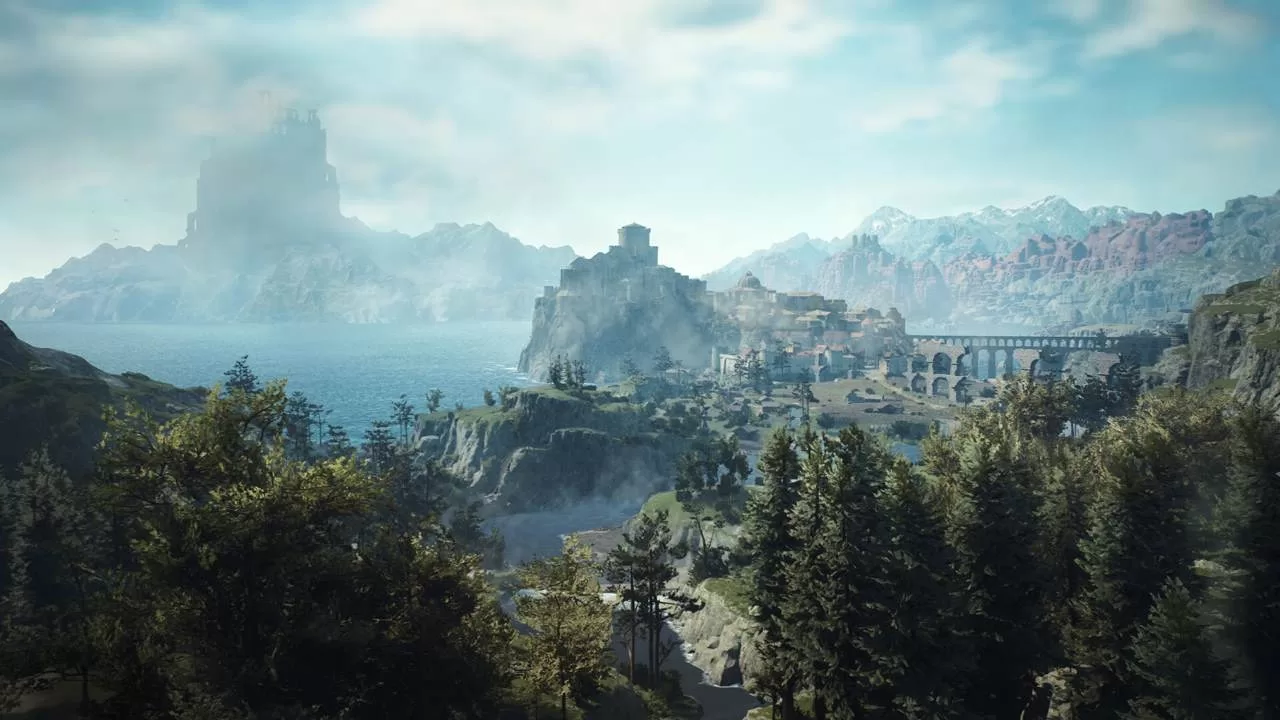
Dragon’s Dogma 2 goes out of its way to present a setting with a fully functioning ecosystem that moves in it of itself. You may be the Arisen, a figure of great importance, but the world operates on its own rules that you must adapt to, or else you’ll be left behind. Far too often, RPGs try to paint the player as the central driving force of everything that goes on in the map. This NPC doesn’t function until you talk to them. This area doesn’t change unless you accomplish something in it. Dragon’s Dogma 2 is the complete opposite of that. One of the more immediate things that impressed me the most about the game is how dynamically alive the world feels.
During the day, the people go about their own routines, agendas, and lives. It’s up to you to catch up to them when you need something for a quest or something else. Materials such as food and resources can improve or deteriorate over time. You can be exploring a countryside trying to collect herbs and suddenly, you stumble upon a group of warriors trying to fight off a giant troll that just so happen to be passing around. You can also just be riding around in an ox cart, one of the few options for “fast travel”, and suddenly be stopped because you are being raided by goblins. I even had a moment where I was just trying to shop around in the main city until I heard a loud roar and people running for their lives. I soon found out that a cyclops made its way to the main gates and is now terrorizing the citizens.
When it comes to nighttime, it’s a completely different experience. It’s almost pitch black, even when you have a lamp turned on and some of the monsters that you’ll encounter in the wilds can be vastly different from the ones you have gotten used to during the day. It’s a terrifying experience, especially in the first few hours of the game.
None of the examples I mentioned are scripted sequences. Each of them happens just because one game system has interacted with another in a completely natural way. You are a significant piece of the puzzle, but you’re not the whole image of it. This sense of collective belonging is a great way to make the player feel like they are part of a fully functioning ecosystem. Another huge part of what makes it all work is the pawn system.
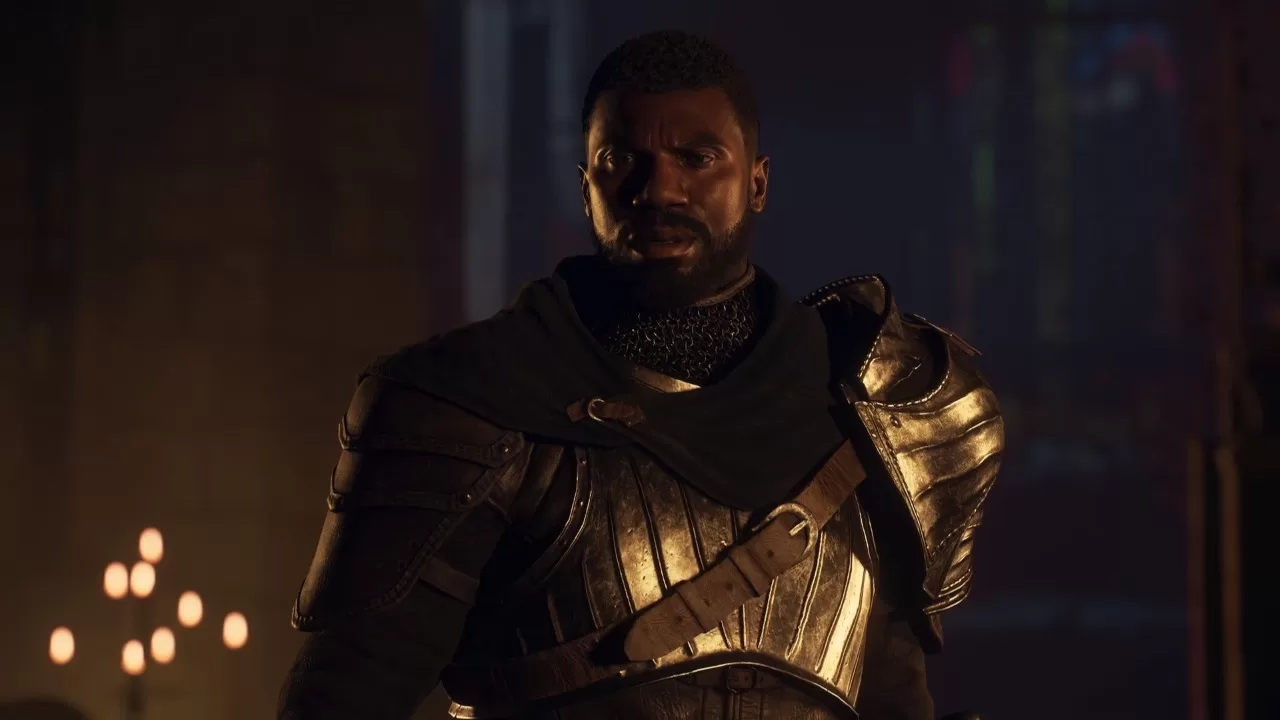
Introduced in the original, the pawn system is one of the more unique features the Dragon’s Dogma franchise has. It basically lets you create a pawn, an AI controlled companion in which you can upload to the Rift, where other players can hire each other’s creations. Once hired, they can carry over critical knowledge they’ve learned from their past adventures and help you such as pointing out hidden secrets, paths, quest objectives, and so much more. You can customize what class you pawn will be and how they’ll act. Do you want to be more of a support role? An aggressive personality? Do you want them to help keep track of your carry weight? Be proficient in gathering materials? These things have to be considered when you also hire pawns of other players or even the ones that Capcom themselves have made. A properly optimized party can mean the difference between a successful adventure or a save reset.
While adventuring, pawns will sometimes make commentaries on a given situation such as telling a story about their previous masters, pointing out if your party is currently holding different classes or the same ones, or even providing useful insights on how to go about a certain mission. I do see some players thinking that this can get annoying, given how much they can yap away but personally, I think it’s a great way to add more personality to the journey.
Aside from the various Rift stones scattered throughout the world, you can also just stumble upon roaming pawns, going about their own adventures. Dragon’s Dogma 2 constantly reminds you how alive the world is and to such incredible extent that I never felt like every day was the same as the last.
How far you’ve come
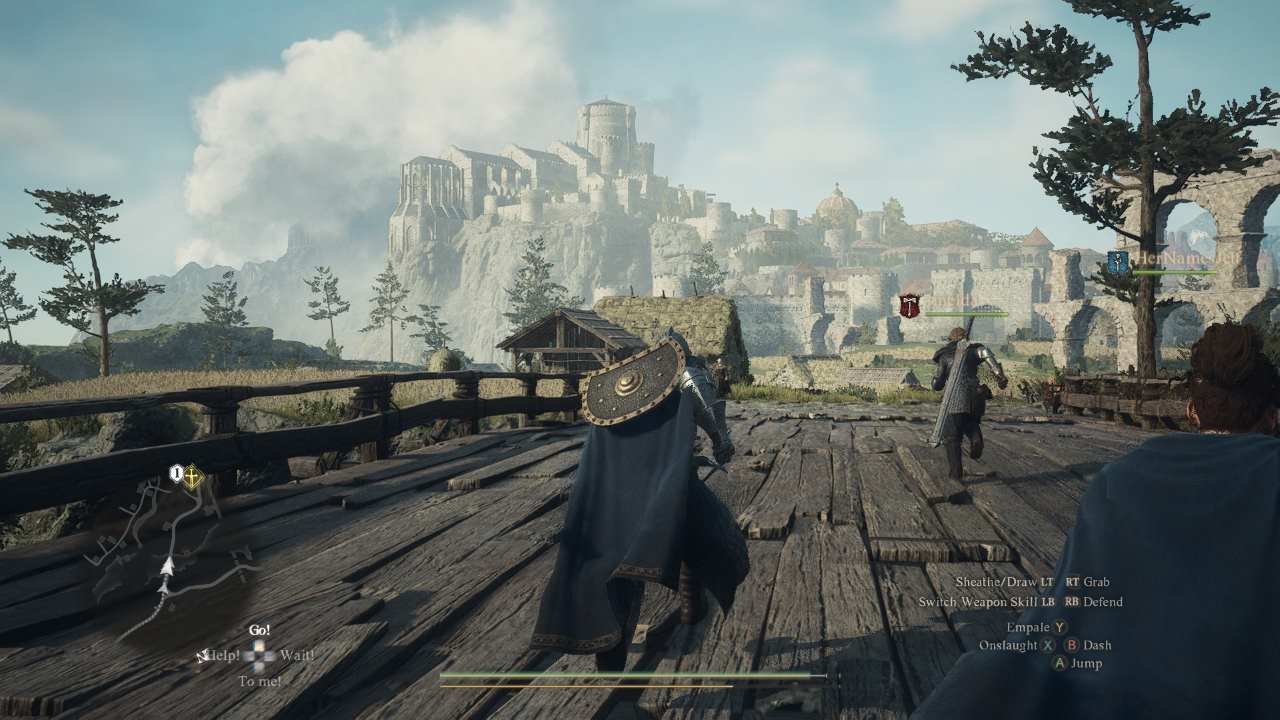
The motivation to do world exploration is further helped by the fact that the game can look absolutely gorgeous at times. Landscapes are vast, infrastructures are well-detailed, and character models alongside monster design are filled with so much detail. The setting of Dragon’s Dogma 2 is something that you would want to see more of.
The director of the game doesn’t really believe in fast travel. Don’t worry, there are still a couple of options here such as the aforementioned ox cart and the use of Ferrystones, a semi-rare resource that you have to find and earn for yourself. The focus of Dragon’s Dogma 2 is not in how fast you can traverse the world, it’s in how interesting it is for you to want to keep exploring. It has been mentioned in multiple interviews that the developers believe when an RPG is relying too much on fast travelling, it doesn’t put enough attention to the level design of the map itself.
This design philosophy is something that I can agree with and after spending more than 20 hours in just the opening areas alone, I can say that the world of Dragon’s Dogma 2 does a phenomenal job at rewarding the curious explorer while also presenting just the right amount of interesting things to bump into when just trying to beeline the main path.
The limitations of stamina are still annoying but it’s nowhere near as scarce as it was in the first game. Levelling up in Dragon’s Dogma 2 happens at a great pace which further improves base stats. Couple this in with managing carry weight and the gear you equip, you’ll be running so much faster and farther than you ever could in the original.
‘Tis but a scratch
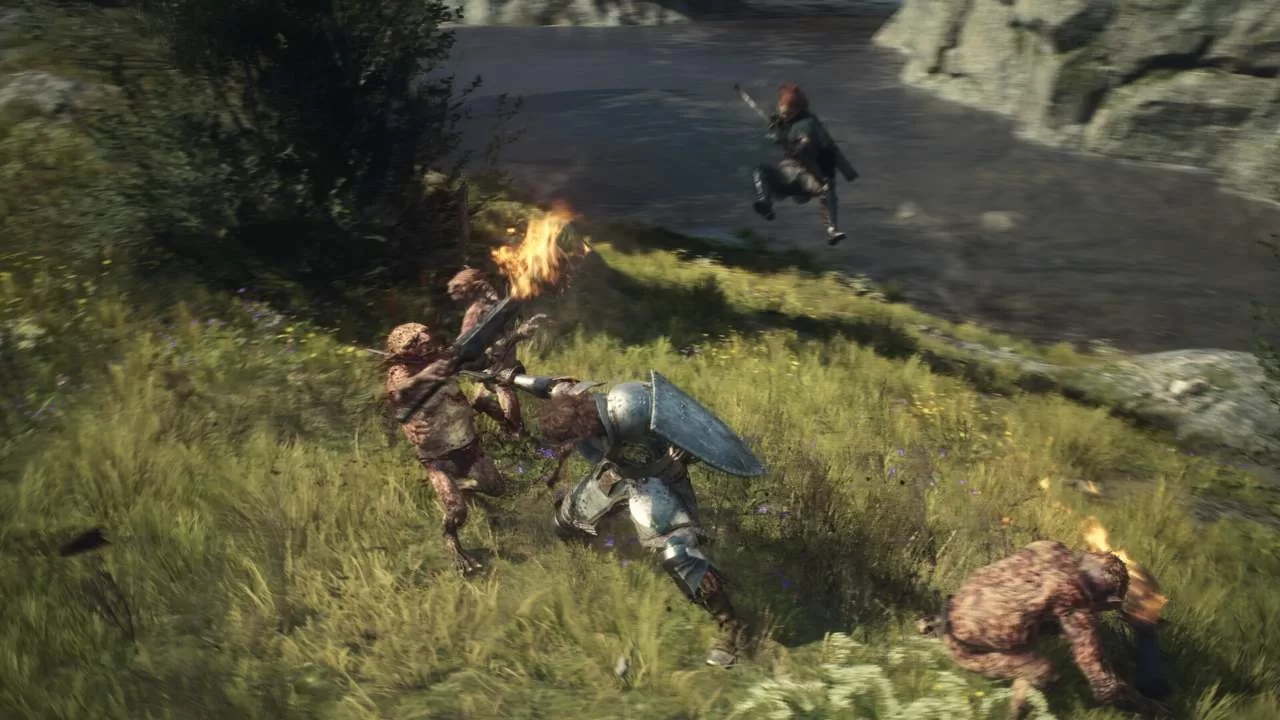
Combat in Dragon’s Dogma 2 is where the real deal is at. It not only builds upon the foundation laid by its predecessor but also elevates it to new heights, making it one of the standout features of the game. With a plethora of improvements and refinements, the combat in the game offers a deeply satisfying and immersive experience that kept me engaged and coming back for more.
One of the most noticeable enhancements to the combat system is the incredible visual and audio feedback. From the impact of each strike to the sounds of swords clashing and spells casting, every action feels weighty and impactful. The special effects accompanying each skill and ability are also top-notch, making every encounter a spectacle to play through.
Vocations adds a new layer of depth to character customization and progression. At the start of the game, players choose a class that determines their playstyle and available abilities. Whether you prefer the agility of a rogue, the brute strength of a warrior, or the powers of a mage, there’s a vocation class to suit every playstyle. As players level up, they gain access to new skills and passive buffs specific to their chosen vocation, allowing for further customization and specialization. There is the ability to switch vocations at any time, allowing players to experiment with different playstyles, should you want a different path. Additionally, as the game progresses, players can unlock more hybrid and powerful vocations.
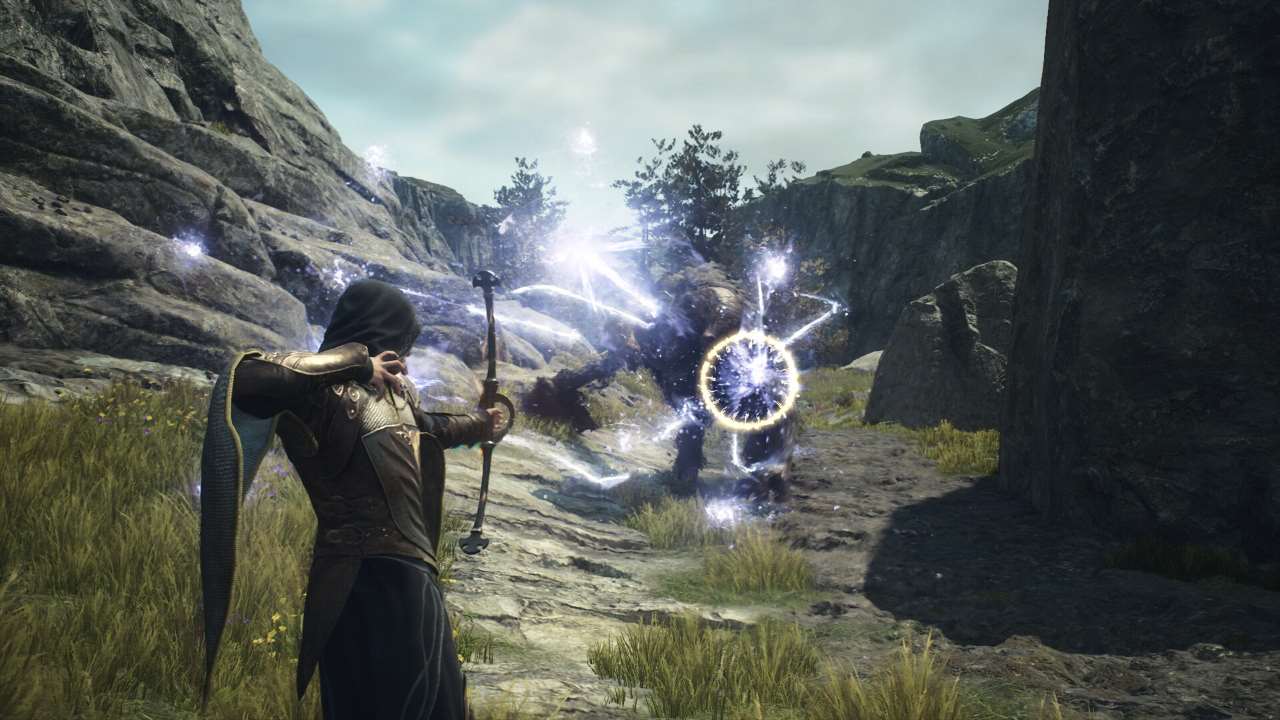
Preparation is key in Dragon’s Dogma 2, and the game rewards players who take the time to strategize and plan their approach to combat. From carefully selecting their party members to stocking up on essential items and equipment, players must consider every aspect of their journey to overcome the challenges that lie ahead. The sense of satisfaction that comes from successfully executing a quest while overpowering massive monsters encountered along the way is unparalleled. You know you got the game design right when my character is barely surviving with a slivver of health left and I’m scrambling around trying to find a campsite to rest at or beeline the nearest town. It’s this sense of real fear that gave so much more importance and weight to the world and the very real dangers it can provide.
When you die, your party can revive you if you have a wakestone at hand. If not, it’s game over and you’re given the option to either reload the last save or the last inn/bed you rested at. Luckily, the autosave system here is so much more forgiving than the original. It initiates a save before every encounter, so you get the chance to have a go at it again or choose to flee for safety.
The challenging combat and hardcore systems of Dragon’s Dogma 2 is the good kind of frustrating. At times, you will get mad at it, and it will feel like it’s constantly pounding you to the ground. But, the sense of accomplishment once you figure out how to work around it all is a feeling that is so incredibly rare nowadays with so many games who seemingly try to spoon-feed you as much as they can. Much like From Software’s approach, Capcom lays it all out for the player to play around with, but it is up to them to leverage every gameplay system to its fullest extent.
Dragon’s Dogma 2 Review Final Verdict – 9/10
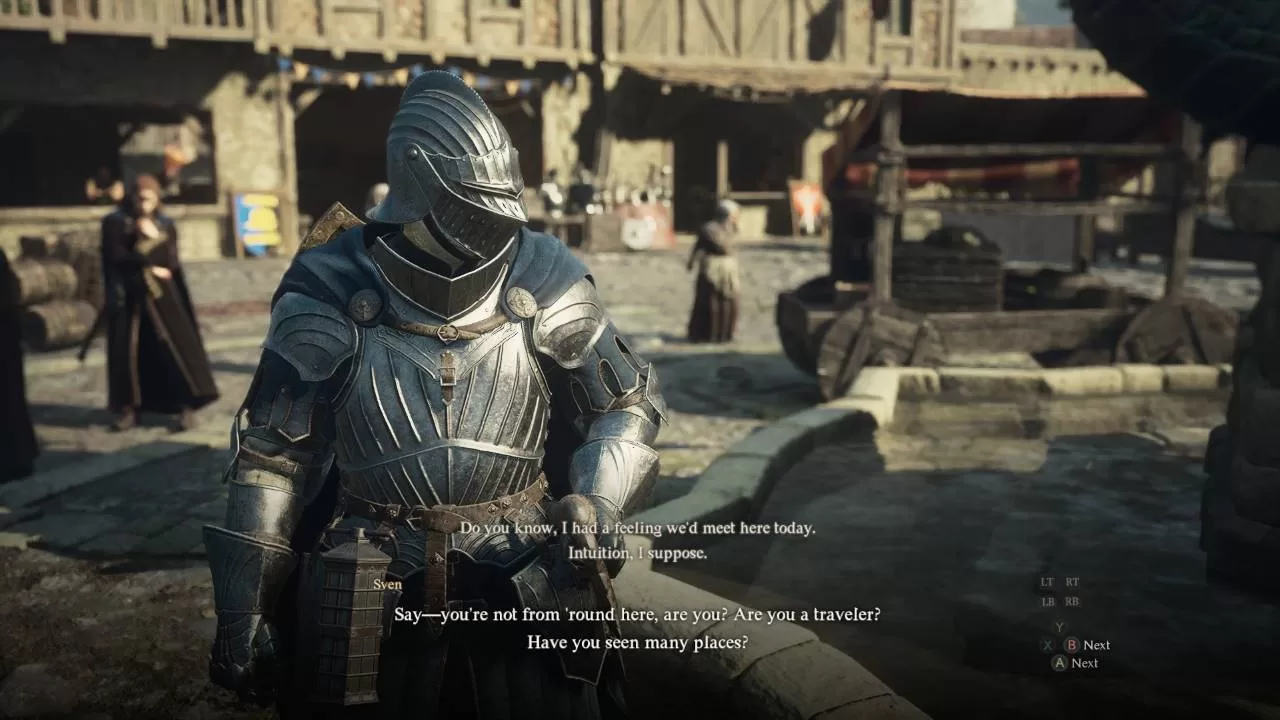
Dragon’s Dogma 2 is an incredible sequel that stays true to the essence of the original while delivering a host of improvements. It is a game that does not concern itself with what needs to be done to appeal to the most amount of players possible. Instead, it sticks to what it wants to be and that is to become an RPG that truly shines in trusting the players to forge their own adventure. It is a testament to the enduring appeal that made the first game a cult classic.
The only real major complaints I have is that the game could use a bit more enemy variety. The major monsters are visually stunning and mechanically engaging but I can only fight so much hobgolbins, harpies, bandits, and saurians before it can get repetitive. There are also the glaring performance issues. I played the game exclusively on a pretty beefy AMD Ryzen 5 5600X with a 4070 GPU and the game still struggles to reach 100 fps in the open-world and it severely drops to around 30-45 when I’m at the town areas. While fixes have been confirmed to be coming, it’s still unfortunate that these technical issues are present during launch after such a lengthy amount of development time.
With its captivating world, engaging combat system, and richly detailed narrative, Dragon’s Dogma 2 is not only a standout game but also a worthy successor that surpasses its predecessor in every way. Whether you’re a fan of the original or new to the series, Dragon’s Dogma 2 is an experience not to be missed.
This review was made using a game code for the PC provided by the publisher.

